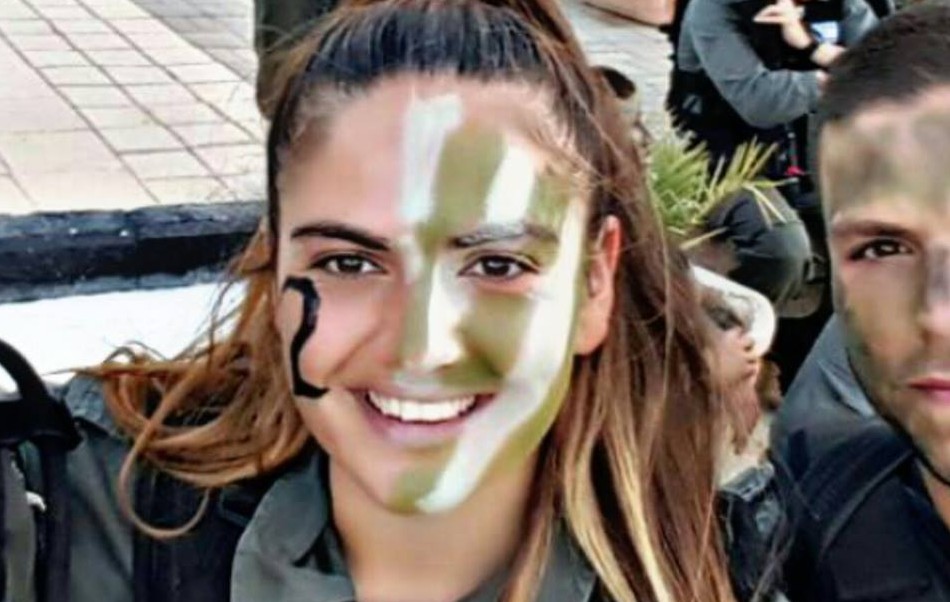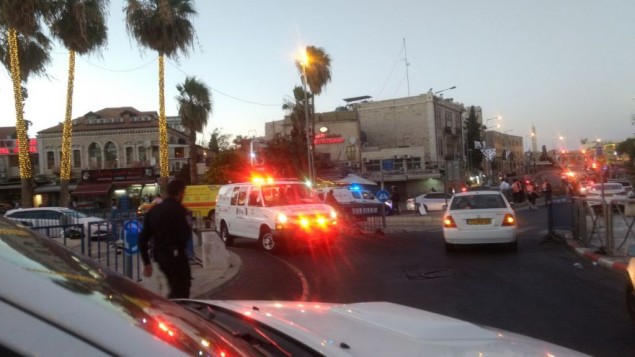Paramedic Muhammed Abd Elrhaman arrived at the scene of the terror attack by Damascus Gate and immediately ran to treat the injured soldier, Sergeant Hadas Malka, while reports in the background spoke of more attackers. Muhammed furiously fought to save her life and even stayed by her hospital bed during her final moment. Today he shared his feelings with us.
The Friday peace was shattered by the voice of the Dispatch Officer in Magen David Adom’s (MDA) 101 Dispatch Center relaying a call about a stabbing by Damascus Gate in Jerusalem. Seconds earlier, three terrorists attacked a Border Police force that was on patrol in the area. One of the terrorists, only 18 years old, stabbed Hadas Malka and critically injured her, however the soldier didn’t give up and fought back for some time. Other members of her unit saw what was happening, shot and neutralized the terrorist, and then immediately called MDA.

Muhammed Abd Elrhaman, an experienced Paramedic from MDA’s Jerusalem station who has already witnessed many terror attacks during his years of service, immediately understood that this was a serious incident. Abd Elrhaman explained “I was on a MICU (Mobile Intensive Care Unit) shift in Pisgat Zeev and when we reached Begin Junction, only a minute away from the attack, we received a report over the radio from MDA Jerusalem that the Israel Police were requesting an ambulance after they saw on security cameras that someone had stabbed a soldier and that they are now lying on the floor. At first we didn’t realize that it was a female soldier. Noa Tiram, the Dispatch Officer, immediately sent an ambulance to assess the scene. No more than 20 seconds later it became evident that this was a terror attack, potentially still ongoing, and I called up and volunteered for the call as we were very nearby.
We headed straight to the scene and heard over the radio that it was a developing incident but we were still uncertain as to its nature. At first the suspicion was of a criminal act rather than a terror one. However, seconds later, there was a report that it was terrorism that we had to take special precautions and don protective gear, to team up with the Police, and instruct the youth volunteers to remain on the ambulances. I realized that we would be first on scene and reported so to the Dispatch Center, knowing that there were another five ambulances behind me.”
Hadas was bleeding and unconscious
Treating Hadas reminded Muhammed of previous terror attacks at Damascus Gate, when other critically injured were brought to him. Muhammed said “When I arrived at the scene a regular ambulance reported that he was already transferring a seriously injured patient towards Hadassa Har Hatzofim Hospital. I decided that we would meet him at Damascus Gate by the scene of the attack so that we could treat the patient with drugs and advanced life saving capabilities. When we opened the ambulance door we saw the 23-year-old victim, a female Border Police soldier in combat gear and stab vest. She was unconscious.
During the primary assessment I noticed stab wounds to her upper body and massive bleeding. I realized that I was fighting the clock and began some intensive treatment.”

During your treatment at the scene, there were reports of other terrorists. Were you scared?
“When I’m dealing with such a critically injured patient, I concentrate only on her – not on the radio. I didn’t hear the warning about further terrorists, and it wouldn’t have made any difference to me because I had to treat her. At the time I was just with her. I undertook a surgical procedure in the field to release air from her chest cavity and treated her other wounds to try to prevent further blood loss.
I told my crew to begin resuscitation attempts, physically performing chest compressions. One volunteer leaned on the wound in her neck to try to stem the bleeding, a second volunteer performed the compressions and I intubated her and started an IV line in her neck to try to stabilize her situation.
Within only 7 minutes we provided most of the treatment at the scene using advanced surgical techniques, ventilated her, gave her drugs and transported her to hospital.”

We hoped so much that she would pull through
The crew arrived at hospital with Hadas and immediately went into the trauma room. Muhammed’s crew joined the doctors who fought for her life and he treated her up until her last moments. Abd Elrhaman said “There were a few optimistic moments when we arrived at the hospital and took her to the trauma room, but the optimism was short-lived as her situation worsened and she was classified in a critical condition.
We carried on doing chest compressions, she was given more blood and more drugs, but eventually, about an hour after she reached hospital, she was pronounced dead. We fought for her life – all of us. MDA crews and hospital teams. The moment her death was pronounced was a very difficult one for us all.”
Muhammed’s crew was kept at hospital until after Hadas’s family was informed that she had died. Muhammed said “We sat there and waited. Only after it was all over and we’d been allowed to leave the hospital did I hear on the news that there were actually two scenes and three terrorists who went on a shooting and stabbing spree. That’s when we really understood the magnitude of the situation.”
Today, three days after the event, Muhammed explained “We enter active scenes and treat victims while in danger on so many occasions. We act during those times through a feeling that we have a mission to complete, and with only one thought on our minds – to save the victims. We don’t think about what might happen later or what might happen to us. Each time that we see the scene of a terror attack we run in, when logic dictates to run away to survive. But this is who we are, this is what we know, and this is what we must do.”
Contributed by Magen David Adom

